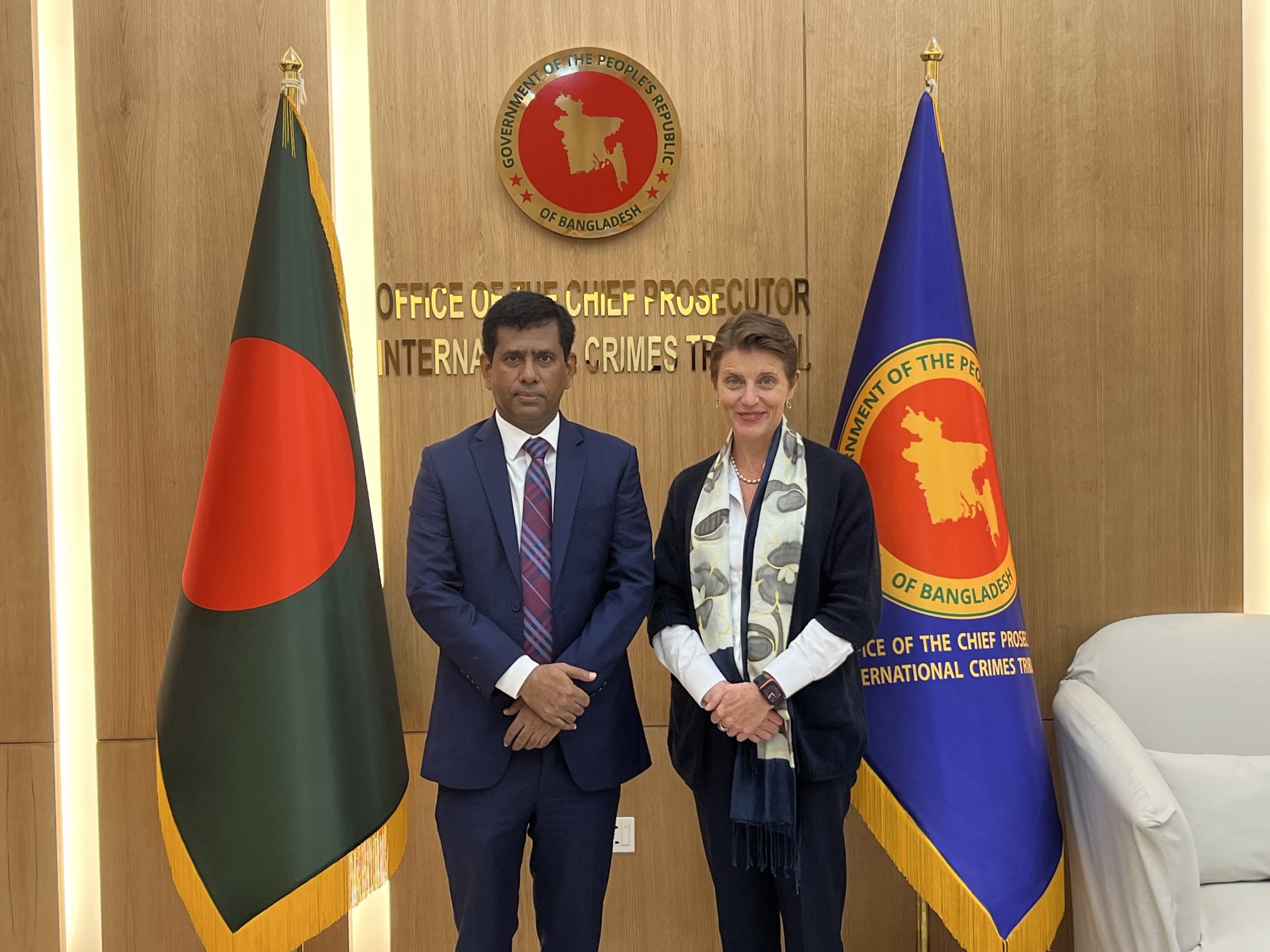The International Crimes Tribunal was formed in 1973, but the trials of the Pakistan Army’s collaborators for genocide, murder, rape, loot and arson couldn’t be launched due to the assassination of then-President Bangabandhu Sheikh Mujibur Rahman in 1975. The subsequent governments rehabilitated them in politics and society.
After the Awami League returned to power in 1996, they paved the way for the Bangabandhu murder trial which was blocked by the military through an Indemnity Act. Before the 2008 elections, the AL pledged to execute the Bangabandhu murder trial verdict and operationalize the ICT proceedings to try the top razakars, mostly belonging to BNP-ally Jamaat-e-Islami.
Since the beginning, counsels for the Jamaat-linked war criminals had been questioning the ICT Act 1973 for lacking international standards. They claimed that the allegations were baseless. Barrister Abdur Razzaq, Md Tajul Islam and Mizanul Islam were among the top lawyers.
Among others, UK attorney Toby Cadman and journalist David Bergman, US government officials and Turkish President Recap Erdogan were critical of the war crimes trials and hanging of the top razakars after legal procedures.
Now that Jamaat and other political parties are enjoying unlimited power after August 5, the interim government backed by the US, Pakistan and the army appointed Tajul Islam as the chief prosecutor of the ICT to try the AL leaders for deaths during the July-August movement, and previously for the incidents of enforced disappearance, illegal detentions and other crimes against humanity. On the other hand, the government has released dozens of top criminals and extremists from jail, and influenced the judiciary to acquit top politicians of serious charges and convictions.
AL leader and former minister Mohammad A Arafat, who is now hiding, has reacted sharply to the way the chief prosecutor is handling the cases, filing of which has already been criticized for lacking international standards.
Arafat said Tajul represented 13 of the convicts, who were the most prominent war criminals.
Another prosecutor Mizanul Islam represented 10 defendants, Md Abdus Sobhan Tarafdar stood for 35, while MH Tamim represented 78 of the defendants.
Arafat questions justice could be ensured in the same courts where the conflicts of interest of the law officers are so prominent. He says these lawyers subscribe to the same ideology of those tried and convicted, which explains their repeated contempt of and disregard for the tribunal.
The former minister alleges that the tribunal is being misused by the unelected and unconstitutional government of Dr Yunus to try and convict AL and national leaders, including former Prime Minister Sheikh Hasina, as a revenge for trying and convicting the war criminals of 1971.
Sheikh Hasina, now staying in India, is facing over 200 cases, most of which were filed for murders.


মন্তব্য করুন
মন্তব্য করার জন্য আপনাকে অবশ্যই লগইন করতে হবে।